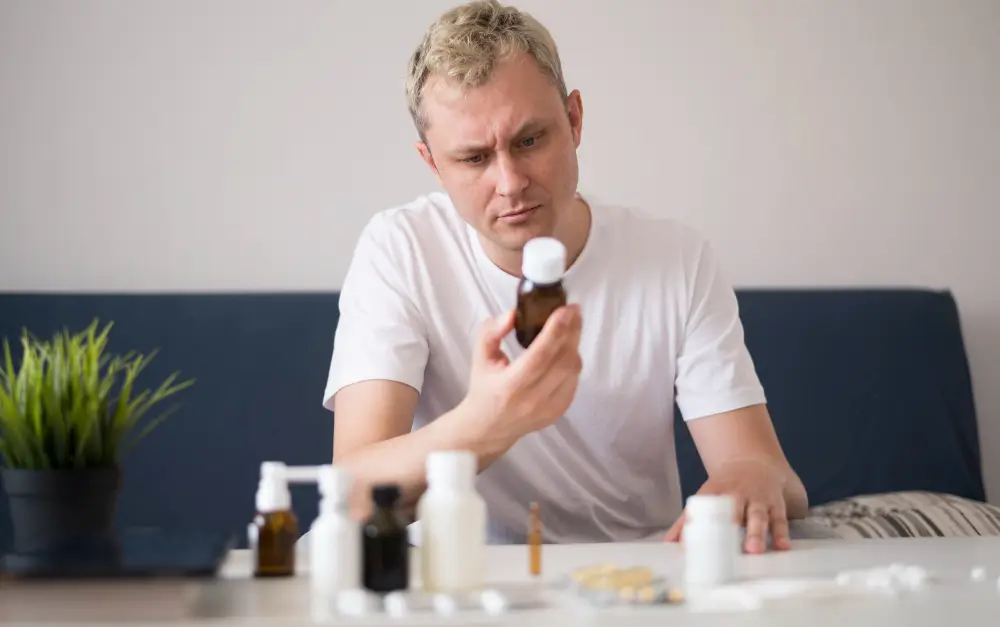
Updated on May 2024 by: Cheryl Kehl, LCSW
Years of research have shown the hefty damage drugs can cause to the body and brain. While all drugs have short-term effects, with feelings such as euphoria or pleasure—unfortunately they also can lead to addiction.
According to the National Institute on Drug Abuse, addiction is a complex brain disease and chronic disorder marked by compulsive drug seeking of the user’s preferred substance, regardless of the adverse consequences. Addiction fundamentally changes the way in which various structures of the brain process rewards, memories and emotions.
Drugs each have their own set of effects on the brain, but there are some universal commonalities of addiction. Not everyone who does drugs becomes an addict, but with any substance there is always a serious risk of developing an addiction disorder.
Some factors that may heighten the risk of addiction are genetics, brain chemistry, underlying health problems or a history of trauma.
Think of the brain as a giant computer with millions of connections relaying information in communication with the nervous system and rest of the body. These processes are necessary for storing memories, processing emotions, making decisions and supporting required functions of other organs.
The study of addiction by neurobiologists is continuously evolving with new discoveries being made regularly. Simply put, drugs and addiction impact the brain’s reward centers, typically causing immediate pleasure and euphoria. Drugs can feel great in the moment, but over time increase tolerance in the brain, changing fundamental structures and leading to addiction.
The way drugs affect the body is by being absorbed by the bloodstream and entering the brain. After reaching the brain, drugs cause chemical and psychological changes in the body, mental health, and general well-being. Here is how they affect our body:
The basal ganglia is made up of a web of complex structures deep in the limbic system of the brain. It has primary control for reward, motivation and pleasure and is key in forming habits and building routines. Two regions of the basal ganglia that are most important for understanding the development of drug addiction are:
The amygdala is located below the basal ganglia. It is often associated with our “fight or flight” response, regulating how the brain processes stress. It is responsible for emotions such as anxiety, irritability and a sense of unease.
The amygdala plays a role in the cycle of addiction, specifically during withdrawal. The amygdala sends stress signals to the rest of the brain and body when a drug is stopped. This is what makes it so difficult to quit a drug or alcohol addiction, even if the user wants to.
Withdrawal often causes users to feel extreme stress and painful side effects in the brain and body. When stopped suddenly, each drug has unique characteristics with a variety of symptoms, but some universal signs of withdrawal may include:
The cerebellum sits at the back of the skull and resembles a “little brain”. Its primary function is to help control smooth movement, motor skills and balance. Drugs and alcohol can increase or decrease our reaction time and motor movements, due to disruptions in communication with the cerebellum.
The hippocampus is a small seahorse-shaped structure and a key region of the brain for memory, learning and emotional processing. During initial exposure to drugs, activity in the hippocampus increases as it builds drug-dependent memories. Over time though, it can have adverse effects with deficits in memory and learning.
Drug addiction is related to a number of impairments of the brain. Some of the risks to mental health from long-term drug abuse may include:

Although we often think of the cognitive and emotional problems that come with drug abuse, the risks of addiction on physical health are well-documented.
Drug abuse can bring underlying health problems to the surface, cause motor impairment that could lead to risky behaviors or accidents, and affect the brainstem that controls primary systems of survival such as heart rate and breathing. Some of the risks to physiological health may include:
Depending on the class of drug, there are a variety of long-term effects drug addiction can have on the brain and body. Universal long-term effects of addiction regardless of the substance may include:
Some of the drug classes with the highest prevalence of addiction include opioids, alcohol, stimulants, and marijuana. Here are some of the substances most commonly treated in addiction recovery centers. Each user may experience a variety of effects differently.
Long-term use of opioids can affect basic functions for survival such as heart rate and breathing. These may include:
One of the most socially acceptable drugs, many people drink alcohol for its ability to cause an increase in positive mood and sociability. Alcohol abuse over time can lead to a number of long-term effects including:
Stimulants increase activity in the brain. They range from caffeine, prescription medications to cocaine. Chronic abuse of stimulants may have long-term effects such as:
The growing popularity of marijuana use has many believing this drug is harmless. Although not as lethal as some other classes of drugs discussed, chronic marijuana use can cause a number of cognitive impairments and effects on the brain such as:
The emotional toll drug addiction can take on the user and their loved ones’ lives is extensive. This brain disease has long been misunderstood, but with new advancements in neuroscience, and evolving treatments, recovery is more possible than ever.
Corner Canyon Health Centers’ doors are open for adults seeking treatment to overcome their addiction and build a path to recovery. We provide residential treatment that offers a warm and welcoming home environment paired with exceptional individualized clinical care using the latest evidence-based treatments for both mental health and addiction issues.
For information on our program contact us today.
National Institute on Drug Abuse. 2018. Drugs and the Brain.
Substance Abuse and Mental Health Services Administration. US Department of Health and Human Services; 2016 Nov. Chapter 2, THE NEUROBIOLOGY OF SUBSTANCE USE, MISUSE, AND ADDICTION.
